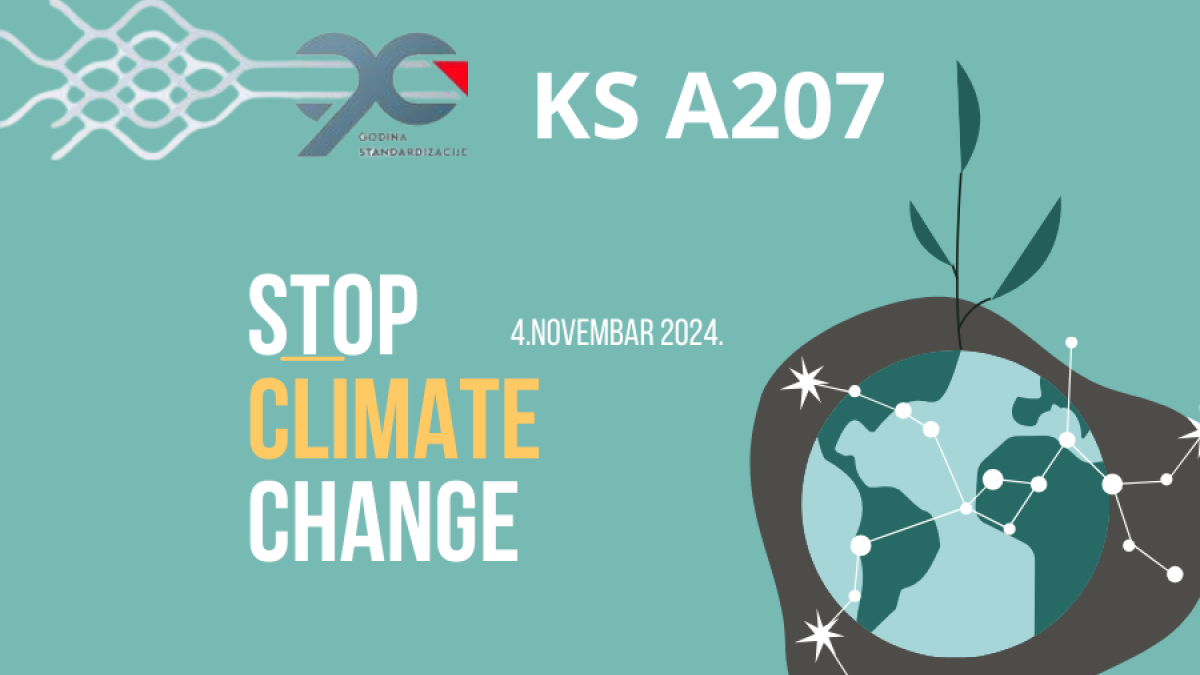4 November – International Day of Climate Action
Climate change poses a significant threat to life on Earth, and humanity faces a difficult task: to reduce and ultimately eliminate carbon dioxide (CO2) emissions. If humanity does not take firm and swift measures to reduce greenhouse gas emissions, the Earth will become much warmer, sea levels will rise, and extreme weather events will become more frequent. Such extreme weather includes more storms, droughts, large floods, and heat waves, which undermine biodiversity, destroy crops, and damage infrastructure.
However, the transformation towards a zero-carbon economy is already underway in many industrial, commercial, and municipal sectors, and ISO standards play a key role in this. ISO Technical Committee ISO/TC 207 for environmental management has developed several standards in the ISO 1406X series for the management of greenhouse gases (GHG) from organizations, projects, and products. All parts of the standard are effective, so many government bodies that regulate GHG emissions have adopted these standards and made them mandatory for the assessment and verification of GHG emissions regulated under emissions trading schemes. Subsequently, ISO published a related standard, ISO 14067, for determining GHG emissions or the carbon footprint of products. This document describes the standards in the ISO 1406X series and how they contribute to the transition to a zero-carbon economy.
The ISS NTC A207, which specializes in environmental protection, is responsible for the development and maintenance of the ISO 1406X series of standards for greenhouse gas assessment and verification.
Nationally adopted standards from the 1409X series also play a significant role in this area. First of all, it is necessary to mention the standard SRPS EN ISO 14090:2019, Adaptation to Climate Change - Principles, Requirements and Guidelines. This bilingual document establishes the principles, requirements and guidelines for adapting to climate change. The standard is applicable to any organization, regardless of its size, type or nature. This document supports the development of standards that are specific to a sector, aspect or element and deal with climate change adaptation.
Another important standard, SRPS EN ISO 14091:2021, Adaptation to Climate Change - Guidelines related to vulnerability, impact and risk assessment (in English, but the Serbian translation is currently in the draft stage), provides guidelines for assessing risks associated with potential impacts of climate change. This standard describes how to understand vulnerabilities and develop and apply risk assessments in the context of climate change. It can be used to assess both current and future climate-related risks. The risk assessment according to this document provides a basis for planning, implementing, monitoring and evaluating climate change adaptation for any organization, regardless of its size, type or nature.
These standards are meant to complement other organizational priorities, enabling the simultaneous pursuit of climate change adaptation activities alongside climate change mitigation and other sustainable business practices. Their adoption can further bolster the organization's credibility and reliability in the eyes of stakeholders regarding its approach to climate change adaptation.

